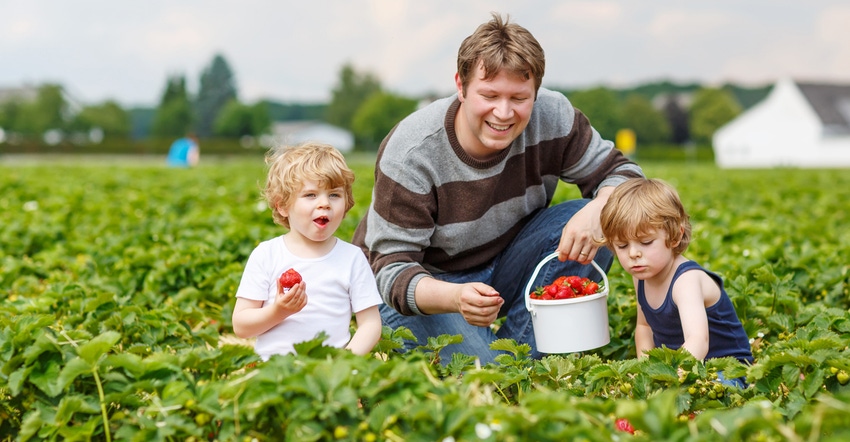June 9, 2021

As we move through summer and into fall, many operations will be allowing visitors on the farm, either as customers in an agritourism operation or just for one-off recreational uses.
As you enable visitors on the farm, you may be wondering how to limit your potential liability — not only from accidents that can happen, but also from COVID-19.
Being proactive early can help lessen your potential liability and ensure you have a plan to handle any lawsuit that may occur. While nothing can effectively eliminate your legal risks, being proactive will help develop a case that your operation is doing the right thing.
The most common claim brought against farmers who open their operations up to agritourism is negligence. Negligence is the failure to exercise a duty of care to expect a reasonable and prudent person to exercise.
On an agritourism operation, operators are held to a standard of an invitee, which means your duty is to protect people from unreasonable risks and keep the property reasonably safe. In the case of an agritourism operation with a petting zoo, for example, we might expect a reasonable and prudent operator to have proper fencing to keep the animals contained and prevent injury to visitors.
What steps should you be taking to limit your potential liability? Here are four things to do:
1. Walk the public areas of the farm. First, take a moment to walk the areas where guests will be allowed to roam. If areas need repairs to prevent injury, make the guests aware of these areas so they can avoid damage until you can get the areas repaired.
For example, you sell homemade ice cream on-site made from milk produced on your farm. To get into the creamery, customers must walk up three wooden steps, but you notice that the top step is starting to rot.
Until it is fixed, you should provide some warning, such as a sign that reads “Be Careful of the Rotten Step.” This helps direct your customers to an alternative route into the creamery until the step is fixed.
2. Keep things clean. States are beginning to drop many COVID-19 restrictions. You should still consider strategies to prevent the spread of disease on your farm.
If you are operating an agritourism operation that includes a petting zoo, animals that the guests may touch could spread salmonella, campylobacter and E. coli. 0157. Take a moment to install hand sanitizer stations, or put up a table with hand sanitizer for guests to use.
Operators should consider local or state health department warnings for potential disease outbreaks and possible strategies to limit the spread of the disease.
3. Define who is doing what on the farm. It is important to make sure all your employees are trained in the safety practices of the operation to ensure visitors are not injured while on the farm.
Clearly define roles in the operation to ensure employees are handling issues that could arise. For example, looking back at the petting zoo, who is responsible for monitoring the hand sanitizing station throughout the day to ensure full bottles are available? Another example, who is checking the hayride to ensure it is safe to use?
4. Review your insurance. Finally, take a moment to review your liability insurance with your insurance agent. Ensure the agent understands what you are doing in your operation and that you have the appropriate coverage that will best protect you and your operation.
Consider walking through the operation with your insurance agent to get feedback on additional strategies you could implement.
Managing liability in your operation can often seem daunting, but being a little proactive can help prevent issues down the road and better limit your liability.
Make sure you are properly training employees, have roles and responsibilities clearly defined, and work with your insurance agent to determine if your coverage is appropriate. At the same time, consider how you can help prevent disease outbreaks to visitors within your operation.
Although the COVID-19 pandemic is waning, more common disease issues still exist, and you should consider how to handle that early on.
Goeringer is an Extension legal specialist with University of Maryland. This article is not legal advice.
Read more about:
Covid 19About the Author(s)
You May Also Like






